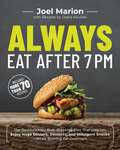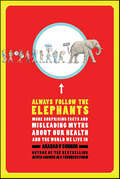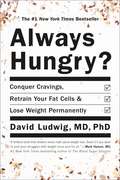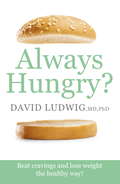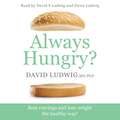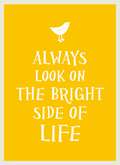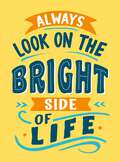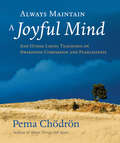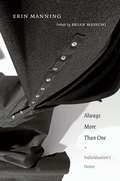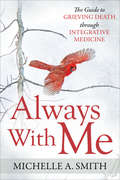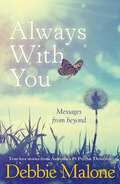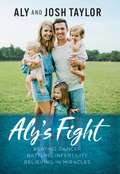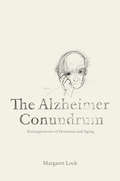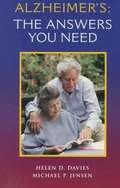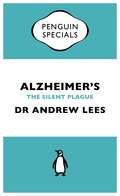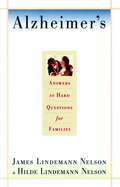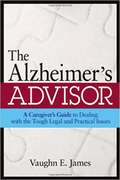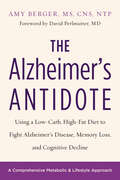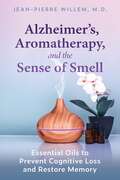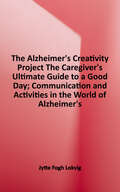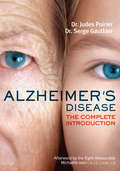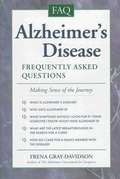- Table View
- List View
Always Eat After 7 PM: The Revolutionary Rule-Breaking Diet That Lets You Enjoy Huge Dinners, Desserts, and Indulgent Snacks#While Burning Fat Overnight
by Joel Marion Diana KeuilianWall Street Journal Bestseller Based on surprising science, Always Eat After 7 PM debunks popular diet myths and offers an easy-to-follow diet that accelerates fat-burning and allows you to indulge in your most intense food cravings: Eating the majority of your calories at night. Conventional diet wisdom tells us we should avoid carbs, and have an early dinner, and never eat before bed. But the fact is, the latest scientific research just doesn't bear this out. In Always Eat After 7 PM: The Revolutionary Rule-Breaking Diet That Lets You Enjoy Huge Dinners, Desserts, and Indulgent Snacks—While Burning Fat Overnight, fitness expert, nutritionist, and bestselling author Joel Marion debunks the myths underlying traditional dieting and offers a simple, highly effective weight loss program. This three-phase plan shows dieters how to lose big by strategically eating big in the evening when we're naturally hungriest. The secret to sustained fat loss lies in a combination of intermittent fasting (IF), filling daytime meals with Volumizing Superfoods, and strategic hormone-regulating food combinations—before bed (including Super Carbs like potatoes and white rice!). The Always Eat After 7 PM plan consists of: The 14-day Acceleration Phase to kick-start the program and see rapid results The Main Phase where you'll learn exactly which foods to eat when in order to achieve your weight-loss goals The Lifestyle Phase to keep the weight off for good You'll even be able to enjoy social dinners and dining out without restriction, satisfy nighttime hunger with fat-burning sweet and salty pre-bedtime snacks, and further indulge your cravings—and improve your results—with strategically timed cheat meals/days. With straightforward food lists, easy-to-follow meal plans, and delicious recipes for every phase, this is a simpler, step-by-step, more enjoyable way to lose weight without feeling restricted. In the end, it's every dieter's dream: now you should do what you've been told not to—always eat after 7 PM!
Always Follow the Elephants: More Surprising Facts and Misleading Myths about Our Health and the World We Live In
by Anahad O'ConnorFrom The New York Times's intrepid "Really?" reporter and author of the bestselling Never Shower in a Thunderstorm, more mind-opening health facts (and fictions)In this follow-up to the bestselling Never Shower in a Thunderstorm, New York Times columnist Anahad O'Connor uncovers the truth behind a hundred more old wives' tales and conventional-wisdom cures. O'Connor investigates nagging questions of domestic safety, such as whether you can get radiation poisoning from standing too close to a microwave. (You'll actually be exposed to more watts from your cell phone.) He unearths astounding first-aid "MacGyverisms," such as the attempts by Vietnam War battlefield medics and professional sports stars to seal wounds with super glue. (The bottom line: it works, but can irritate skin.) And he looks into the claim that a pregnant mother with heartburn should expect a hairy newborn (and is as baffled as the scientists who tallied up the clearly evident infant hairdos).For anyone curious about whether to starve a fever or a cold, or whether stifling a sneeze will damage the body, O'Connor delivers yet another winning and irresistible collection of tips about our health.
Always Hungry?: Conquer Cravings, Retrain Your Fat Cells, and Lose Weight Permanently
by David LudwigLeading Harvard Medical School expert and "obesity warrior" (Time magazine) Dr. David Ludwig rewrites the rules on weight loss, diet, and health in this guide to retraining your cells and reclaiming your health for life.Forget everything you've been taught about dieting. In Always Hungry?, renowned endocrinologist Dr. David Ludwig explains why traditional diets don't work and presents a radical new plan to help you lose weight without hunger, improve your health, and feel great.For over two decades, Dr. Ludwig has been at the forefront of research into weight control. His groundbreaking studies show that overeating doesn't make you fat; the process of getting fat makes you overeat. That's because fat cells play a key role in determining how much weight you gain or lose. Low-fat diets work against you by triggering fat cells to hoard more calories for themselves, leaving too few for the rest of the body. This "hungry fat" sets off a dangerous chain reaction that leaves you feeling ravenous as your metabolism slows down. Cutting calories only makes the situation worse by creating a battle between mind and metabolism that we're destined to lose. You gain more weight even as you struggle to eat less food.Always Hungry? turns dieting on its head with a three-phase program that ignores calories and targets fat cells directly. The recipes and meal plan include luscious high-fat foods (like nuts and nut butters, full-fat dairy, avocados, and dark chocolate), savory proteins, and natural carbohydrates. The result? Fat cells release their excess calories, and you lose weight - and inches - without battling cravings and constant hunger. This is dieting without deprivation.Forget calories. Forget cravings. Forget dieting. Always hungry? reveals a liberating new way to tame hunger and lose weight for good.
Always Hungry?: Conquer cravings, retrain your fat cells and lose weight permanently
by David S. LudwigALWAYS HUNGRY? will be both a relief and a revelation to many who struggle with weight. We're not getting fat because we're overeating; we're overeating because we're getting fat. In other words, what makes us constantly hungry, overweight, and undernourished is not a lack of will power, but a biological reaction to our present-day diet and lifestyle. Our fat cells are hoarding the nutrients from the food we eat instead of releasing them into the bloodstream to be used, triggering a starvation response that sets us up for failure: if we eat more, we'll gain weight; if we eat less, we'll slow our metabolism down and (again) gain weight. HELP!ALWAYS HUNGRY shows us how to break out of this cycle that is keeping us overweight. It helps us to: - re-programme our fat cells - tame humger- boost our metabolism- lose weight In a clear, compassionate, and authoritative voice, Dr Ludwig debunks the calorie myth that losing weight is simply a matter of eating less. He explains the science and the research behind our epidemic of overweightness and presents a detailed, highly structured plan to help us conquer the cravings.
Always Hungry?: Conquer cravings, retrain your fat cells and lose weight permanently
by David S. LudwigALWAYS HUNGRY will change everything readers ever thought about weight loss, diet, and health, and show us how to lose weight without counting the calories or feeling hungry.ALWAYS HUNGRY? will be both a relief and a revelation to many who struggle with weight. We're not getting fat because we're overeating; we're overeating because we're getting fat. In other words, what makes us constantly hungry, overweight, and undernourished is not a lack of will power, but a biological reaction to our present-day diet and lifestyle. Our fat cells are hoarding the nutrients from the food we eat instead of releasing them into the bloodstream to be used, triggering a starvation response that sets us up for failure: if we eat more, we'll gain weight; if we eat less, we'll slow our metabolism down and (again) gain weight. HELP!ALWAYS HUNGRY shows us how to break out of this cycle that is keeping us overweight. It helps us to: - re-programme our fat cells - tame humger- boost our metabolism- lose weight In a clear, compassionate, and authoritative voice, Dr Ludwig debunks the calorie myth that losing weight is simply a matter of eating less. He explains the science and the research behind our epidemic of overweightness and presents a detailed, highly structured plan to help us conquer the cravings.(p) 2016 Hachette Audio
Always Look on the Bright Side of Life
by Summersdale PublishersThis little book of sunshine is bursting with witty and optimistic quotes, perfect both for those who always see life sunny side up and for those who might need reminding of the silver lining now and then.
Always Look on the Bright Side of Life
by Summersdale PublishersThis little book of sunshine is bursting with witty and optimistic quotes, perfect both for those who always see life sunny side up and for those who might need reminding of the silver lining now and then.
Always Look on the Bright Side of Life: Sunny Quotes to Lift Your Spirits
by Summersdale PublishersFind the rainbow in every storm with this cheerful collection of uplifting quotes, designed to boost your happiness and have you radiating joy. Let this little book be your go-to source of motivation and positivity, providing a quick and powerful pick-me-up whenever you need it most.
Always Maintain a Joyful Mind: And Other Lojong Teachings on Awakening Compassion and Fearlessness
by Pema ChodronFor centuries Tibetan Buddhists have relied on a collection of fifty-nine pith teachings (called lojong in Tibetan) to help them develop wisdom and compassion amid the challenges of daily living. In this book Pema Chödrön introduces these transformative teachings and offers guidance on how to make them part of our everyday lives.The lojong teachings include: "Always maintain only a joyful mind," "Don't be swayed by external circumstances," "Don't be so predictable," and "Be grateful to everyone." Each slogan is followed by Pema Chödrön's accessible and succinct commentary on how to understand and apply it.This book also features a forty-five-minute audio program entitled "Opening the Heart," in which Pema Chödrön offers in-depth instruction on tonglen meditation, a powerful practice that anyone can undertake to awaken compassion for oneself and others.
Always More Than One: Individuation's Dance
by Erin ManningIn Always More Than One, the philosopher, visual artist, and dancer Erin Manning explores the concept of the "more than human" in the context of movement, perception, and experience. Working from Whitehead's process philosophy and Simondon's theory of individuation, she extends the concepts of movement and relation developed in her earlier work toward the notion of "choreographic thinking." Here, she uses choreographic thinking to explore a mode of perception prior to the settling of experience into established categories. Manning connects this to the concept of "autistic perception," described by autistics as the awareness of a relational field prior to the so-called neurotypical tendency to "chunk" experience into predetermined subjects and objects. Autistics explain that, rather than immediately distinguishing objects—such as chairs and tables and humans—from one another on entering a given environment, they experience the environment as gradually taking form. Manning maintains that this mode of awareness underlies all perception. What we perceive is never first a subject or an object, but an ecology. From this vantage point, she proposes that we consider an ecological politics where movement and relation take precedence over predefined categories, such as the neurotypical and the neurodiverse, or the human and the nonhuman. What would it mean to embrace an ecological politics of collective individuation?
Always With Me: The Guide to Grieving Death Through Integrative Medicine
by Michelle A. SmithAlways With Me guides those who have lost a loved one how to discover happiness once again. Losing a loved one to death, especially after a long-term relationship, can be exceedingly painful. The intense emotions can feel overwhelming and even paralyzing at times. The joy one once felt seems to be gone and impossible to recover. The days are dark, and the nights are even darker. Always With Me works to show those who have lost a loved one that there is a light shining at the end of pain. In Always with Me, Michelle A. Smith, yoga therapist and energy worker, shows those who have lost a loved one how to journey back to happiness and connection once again. Using her years of training and experience in the field of integrative medicine, Michelle shows readers how to:Use the various tools of integrative medicine to know that they are not aloneUse physical postures, breath work, and meditation practices to find happiness after loss Embrace the power of Reiki or physical touch to feel more connected to everyone Immerse themselves in the healing sounds and vibrations of the Tibetan singing bowls to shift into a new space of happiness and peace Find peace within what is going on around them
Always With You: Messages from Beyond
by Debbie MaloneWhat are soul groups? What is the reality of the spirit world? What lies at the mysterious realm of life between lives? Do our past lives really catch up with us in the present? Past Lives Unveiled takes a fresh, new look at past lives and reincarnation. It features some highly unusual case studies, including two intriguing hypnotic regressions by eminent psychologist, author and past life expert Dr Michael Newton. Two sisters were regressed independently by Dr Newton and went back to life in a Stone Age tribe, details of which have until now been limited to members of the Newton Institute. The author, Barry Eaton, was regressed by Peter Smith, a past-life expert and international president of the Newton Institute. Graphic visitations to ancient Greece and also the US at the time of the Civil War make absorbing reading.
Aly's Fight: Beating Cancer, Battling Infertility, and Believing in Miracles
by Aly Taylor Josh TaylorTLC reality TV stars Aly and Josh Taylor share their story of breast cancer, infertility, and dashed dreams and inspire readers to cling to hope, even when it seems impossible.October 17, 2011 changed Aly and Josh Taylor's lives forever. At just 24 years old, Aly was diagnosed with breast cancer. Everything they had known, hoped for, and dreamed of came to a screeching halt with the news of her diagnoses. Aly's cancer journey is only the beginning of their incredible story. With grit, fierce love, and unyielding faith, Aly and Josh fight for her life and dream of building a family. They battle infertility, face heart-wrenching struggles while trying to adopt, and experience God in miraculous ways. Aly and Josh inspire readers to cling to life, faith, and love, especially when all hope seems lost.
The Alzheimer Conundrum: Entanglements of Dementia and Aging
by Margaret LockWhy our approaches to Alzheimer's and dementia are problematic and contradictoryDue to rapidly aging populations, the number of people worldwide experiencing dementia is increasing, and the projections are grim. Despite billions of dollars invested in medical research, no effective treatment has been discovered for Alzheimer's disease, the most common form of dementia. The Alzheimer Conundrum exposes the predicaments embedded in current efforts to slow down or halt Alzheimer’s disease through early detection of pre-symptomatic biological changes in healthy individuals.Based on a meticulous account of the history of Alzheimer’s disease and extensive in-depth interviews, Margaret Lock highlights the limitations and the dissent associated with biomarker detection. Lock argues that basic research must continue, but should be complemented by a public health approach to prevention that is economically feasible, more humane, and much more effective globally than one exclusively focused on an increasingly harried search for a cure.
Alzheimer's: The Answers You Need
by Helen Davies Mike JensenI have been diagnosed with Alzheimer's. What does this mean for me? For my family? What is happening to me? Will I die? Do herbs work? How can my family cope? These are questions that are all answered in this book for the person with Alzheimer's, their family and friends. This book is written in simple, accessible language for all.
Alzheimer's: An Essential Guide to the Disease and Other Forms of Dementia (Penguin Specials)
by Dr Andrew LeesA short, easily understandable account of Alzheimer's, by world expert Dr Andrew LeesBritain like the rest of the developed world is in the grip of a silent plague. Its thousands of victims can no longer make sense of the world and are contained for their own safety in fading Victorian piles and nondescript redbrick detention centres around the country. For them the present is a foreign country and the past a lost continent.There are now more people in the UK with Alzheimer's than the population of Liverpool, and four million Americans are reported to have the disease. Longevity is a major factor in the increasing incidence of the disease, with the number of over 65s in the UK having trebled in the last 100 years, and forecast to double again in the next 25 years. With such an alarming background, the race to find the causes - and therefore potentially a cure - for Alzheimer's is urgent. In this Penguin Special, Dr Andrew Lees, a world expert on the neurodegenerative diseases explains what we know, and don't know, about Alzheimer's and its amelioration. Dr Andrew Lees is Professor of Neurology at the National Hospital for Neurology and Neurosurgery, London, and Clinical Director of the Queen Square Brain Bank for Neurological Disorders. His major scientific research has been carried out in the field of dementias and Parkinson's disease. A native of St Helens, Lancashire, he lives in north London.
Alzheimer’s: Answers to Hard Questions for Families
by James Lindemann Nelson Hilde Lindemann NelsonCaring for a loved one who is terminally ill can be tremendously stressful under any circumstances. If that person has a degenerative and dementing disease such as Alzheimer's, and is unable to participate in decisions regarding his or her care, the stress is that much greater. When it comes to making those difficult moral and ethical decisions which will preserve the dignity and integrity of the patient while also maintaining the caregiver's own selfhood, this is the book that can help. How much should the patient be told? How strongly should he be urged to plan for his own future? Is it ever right to lie to the patient about her condition? When is it right to place your loved one in a nursing home--and not feel guilty about it? How do different family members arrive at agreement among themselves in each of these situations? Authors and bioethicists James and Hilde Lindemann Nelson have written an invaluable step-by-step guide to tackling these and other difficult decisions. Using their extensive research on moral issues in health care, the Nelsons create hypothetical scenarios that demonstrate some of the most common situations caregivers will have to face during every stage of the illness, and show by example how they can make the right choices for themselves, the patient, and the rest of the family. This invaluable information, combined with a state-by-state and city-by-city guide to agencies and support groups offering practical assistance, as well as a list of suggested reading on the subject, make this book unique--and the most complete source of advice available.
The Alzheimer's Advisor: A Caregiver's Guide To Dealing With The Tough Legal And Practical Issues
by Vaughn E. JamesFor anyone who has ever cared for a person with Alzheimer’s, coping with the emotional, financial, and day-to-day issues can be grueling. While many people are aware of the physical effects of this disease, very few know how to handle the practical issues that can make dealing with a loved one or patient with Alzheimer’s that much more difficult. In The Alzheimer's Advisor, Vaughn E. James offers an empathetic and straightforward guide to the legal and ethical dilemmas associated with this disorder. Using real-life situations, the author offers invaluable advice on such topics as: estate planning • the emotional issues of caring for a patient with Alzheimer’s • how to cope with the cost of care • living wills, power of attorney, and guardianship • treatment and diagnosis • finding the right lawyer and paying for the cost of legal help • legal issues for the mobile Alzheimer’s patient. From recognizing the early signs of the disease to understanding the legal implications, this is the one book that will enable caregivers, health-care practitioners, and family members to protect themselves and their loved ones.
The Alzheimer's Antidote: Using a Low-Carb, High-Fat Diet to Fight Alzheimer’s Disease, Memory Loss, and Cognitive Decline
by null Amy Berger&“If you or someone you know suffers from Alzheimer&’s, I highly recommend this book.&”—Robb Wolf, New York Times bestselling author&“An important and informative text . . . an excellent book.&”—Dr. David Perlmutter, New York Times bestselling authorA revolutionary multi-pronged nutrition and lifestyle intervention to combat Alzheimer&’s disease at its roots from Certified Nutrition Specialist Amy Berger Amy Berger&’s research shows that Alzheimer&’s results from a fuel shortage in the brain: As neurons become unable to harness energy from glucose, they atrophy and die, leading to classic symptoms like memory loss and behavioral changes.This is a revolutionary approach—one that has been discussed in the scientific literature for years but has only recently been given credence in clinical settings, thanks to extremely promising studies wherein Alzheimer&’s patients have experienced complete reversals of the condition. Medical and scientific journals are full of research showing alternate ways to fuel the starving brain, but no one has been bringing this essential information to the people who need it most—until now.In a culture obsessed with miracle medications, the pharmaceutical route for tackling Alzheimer&’s has been a massive failure. Pills and potions don&’t address underlying causes, and regarding Alzheimer&’s, they typically fail to improve even the symptoms. As a metabolic problem, the only effective way to treat Alzheimer&’s may be a multifaceted approach that fundamentally reprograms energy generation in the brain. The good news is, the secret is as simple as switching to a low-carb, high-fat diet.The Alzheimer&’s Antidote shows us that cognitive decline is not inevitable, but if it does occur, we don&’t have to sit idly by and wait helplessly while it progresses and worsens. Amy Berger empowers loved ones and caregivers of Alzheimer&’s sufferers, and offers hope and light against this otherwise unnavigable labyrinth of darkness.
Alzheimer's, Aromatherapy, and the Sense of Smell: Essential Oils to Prevent Cognitive Loss and Restore Memory
by Jean-Pierre Willem• Cites multiple clinical studies to show how Alzheimer&’s is critically bound with the sense of smell and how the loss of this sense is often the first symptom of onset • Details how to use essential oils to stimulate memory, prevent cognitive loss, and counter the isolation, withdrawal, and depression of Alzheimer&’s patients • Reveals the striking results seen in several French hospitals and senior living homes where aromatherapy has been used as a therapy for Alzheimer&’s While there is still no known cure for Alzheimer&’s, new research and trials from France reveal that it is possible to slow its progression, ameliorate some of its effects, and improve the quality of life for those suffering from this degenerative condition, using the sense of smell. Citing years of clinical evidence, Jean-Pierre Willem, M.D., shows how Alzheimer&’s is critically bound with the sense of smell. He explains how the olfactory system is connected to the limbic area of the brain, which holds the keys to memory and emotion and is the area of the brain most severely afflicted by Alzheimer&’s. He reveals how one of the very first signs of Alzheimer&’s is typically the loss of the sense of smell. Sharing the striking results seen in French hospitals and senior living homes where aromatherapy has been used as a therapy for Alzheimer&’s for more than 10 years, Dr. Willem details how to use essential oils to stimulate memory, prevent cognitive loss, and counter the isolation, withdrawal, and depression these patients are likely to feel. He explains how essential oils make a direct connection with the cerebral structures involved in emotion and memory and make it possible for the patient to bring deeply buried memories back to the thinking surface. This allows the patient to recover a portion of their identity, which can become the foundation for additional healing, including regaining the ability to communicate and reducing behavioral issues. Tracing the evolutionary links between smell and taste, he also explores the effects of diet and nutrition on Alzheimer&’s and other forms of dementia, explaining the benefits of raw foods, what foods to avoid, and what supplements can help. Offering a hands-on and medication-free way to help those suffering from Alzheimer&’s, this guide provides a way for Alzheimer&’s patients and their families to recover the joy of living again.
The Alzheimer's Cope Book: The Complete Care Manual for Patients and Their Families
by R. E. MarkinThis manual covers everything from talking about Alzheimer's with your loved ones, to deciding whether nursing or home care is right for your loved one. The author includes several helpful checklists, as well as a bibliography.
The Alzheimer's Creativity Project: The Caregiver's Ultimate Guide to a Good Day; Communication and Activities in the World of Alzheimer's
by Jytte Fogh LokvigCreative activities for people with Alzheimer's and other dementias in an easy-to-follow format for professionals and family caregivers. A full-color guide to projects, art making, and other purposeful activities, as well as the basics of effective communication and approaches. This book is based on ten years of creativity sessions with people with advanced dementia and late stage Alzheimer's. Creativity is used not simply in the popular terms of the creative arts, but rather in its broadest sense of how we approach everything we do throughout the day. Creativity means letting go of our old notions of doing something, being open to new experiences and allowing ourselves to be open to think out of the box and go with the flow and ebb of our situation and the people we work with. When we discard our standard activity programs and give people the space and time to follow their own schedules, we may witness amazing results, as you'll see in this book.
Alzheimer's Diagnostic Guideline Validation: Workshop Summary
by Diana E. PankevichScientific advances during the last decade now indicate that Alzheimer's disease is a continuous, progressive cognitive disease, most likely beginning many years before dementia is apparent. To discuss the next steps in validating new diagnostic guidelines for Alzheimer's disease, the IOM Forum on Neuroscience and Nervous System Disorders hosted a public workshop session at the Alzheimer's Association International Conference.
Alzheimer's Disease: The Complete Introduction
by Dr Judes Poirier Dr Serge Gauthier Barbara Sandilands André Chagnon The Right Honourable Michaëlle JeanA guide for caregivers and sufferers coping with Alzheimer’s. Alzheimer’s disease is a reality in millions of lives and a serious concern for seniors and their loved ones. In developed countries where people are living longer than ever before, the incidence of Alzheimer’s is reaching epidemic proportions, according to the World Health Organization. For families, sufferers, and caregivers, the need for reliable, clear, and concrete information has never been greater. Alzheimer’s Disease: The Complete Introduction is a comprehensive guide to the disease and its effects: getting a diagnosis, the ways it can progress and be managed, strategies for supporting sufferers and accessing care, legal concerns, and more. This guide addresses every aspect of the disease from the first doctor’s visit to the long-term measures that can drastically improve the lives of sufferers and those close to them. Inside, you will find: Practical and comprehensive information to guide every step of the process of seeking treatment or a diagnosis A reassuring, realistic guide for family members, caregivers, and patients themselves Answers to the most commonly asked and most pressing questions about Alzheimer’s Detailed and clear chapters on the lifestyle habits that may aid in preventing and managing Alzheimer’s Written by two medical experts, this guide is intended for all. It aims to demystify the disease and provide a clear path to reclaiming stability and quality of life. Finally, it explains the real progress that has been made over the past five years in treatment and prevention.
Alzheimer's Disease Frequently Asked Questions: Making Sense of the Journey
by Frena Gray-DavidsonOffers matter-of-fact answers and empathy to those close to someone with Alzheimer's disease.
